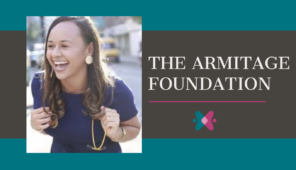Rose Polge: much work needed in supporting doctors
We share the story of Rose Polge, and our pledge to how we can better support doctors who are exploring alternative careers
Rose Polge was a junior doctor in Devon who took her own life in February this year by walking into the sea. Her body wasn’t found until the beginning of April.

One of the apparent triggers that reportedly led to her suicide was the pressures of her work life as a junior doctor.
Despite the support systems she had from her friends and family, it was clear that amidst the media coverage of the junior doctor contract dispute at the time, she became too overwhelmed to continue.
There are also additional reports that she was seeking alternative career choices to medicine and possibly felt like a failure in doing so.
This really is a tragic end to the story of such a young talented doctor, yet unfortunately, her fears and feelings relating to Rose Polge’s work life and careers are all too common in our experience.
The reasons for this are complex, but I believe it stems from some of the following issues:
- There is a selection mismatch for medical school candidates (multi-talented, academic) and the work they eventually end up doing as a doctor (predominantly service driven and relatively inflexible)
- Extensive training programmes from a young age – a minimum of 4 years medical school to 10+ years postgraduate, resulting in perceived difficulties in changing careers due to the length of commitment given already and institutionalisation
- Ongoing taboo within the medical profession on the possibility of changing specialties or leaving medicine entirely
- Fear of failure in any capacity – many doctors are the best and brightest within society. The beauty of failing and learning from it is an unrecognised culture within the profession. With countless of expensive exams throughout their career, failing is never an option.
- Lack of education and self-recognition of the physical and psychological occupational hazards associated with working as a doctor. This includes a lack of awareness and peer to peer support regarding signposting to bespoke wellbeing services for doctors.
- Lack of awareness of the wealth of opportunities for doctors, due to limited exposure and segregation from those doctors who leave the profession and/or decide to diversify their skills.
This is why Medic Footprints was set up over 2 years ago as a doctor volunteer-led organisation, and why it still exists.
We’re here to fundamentally change the way we view medicine, support doctors and open up the platform for alternative careers until they are no longer seen as ‘alternative’.
Here are some of our plans pledged for 2017 – can you help us in any way?:
- Support doctors who are exploring alternative careers through our membership and our closed online facebook forum consisting of medics in similar positions and/or have diversified
- Ramp up our services to include more career coaches and mentors specialising in alternative careers. If you’re one of them – please join us!
- Identify and promote bespoke wellbeing services for doctors. We have already generated an extensive list, but we’re looking for more – in all shapes and sizes to include meditation, mindfulness, psychotherapy and more..!
- Highlight our failures of the month, every month to our members. How we made them and how we hope to learn from them. Why not find out what they are?
- Introduce the Dr. Rose Polge Wellbeing Award at our annual DCW Awards ceremony, to an individual or organisation who has dedicated their practices to supporting doctors in alternative career change and/or wellbeing. This award will be dedicated to the memory of Rose Polge.
Abeyna Bubbers-Jones
Latest posts by Abeyna Bubbers-Jones (see all)
- How to express your interest for job opportunities on the Medic Footprints website - 31st December 2021
- 7 Top Tips on Recruiting Doctors to Non-Clinical or Leadership Roles - 23rd December 2020
- Occupational Medicine CESR: Becoming a specialist without training - 22nd October 2020

